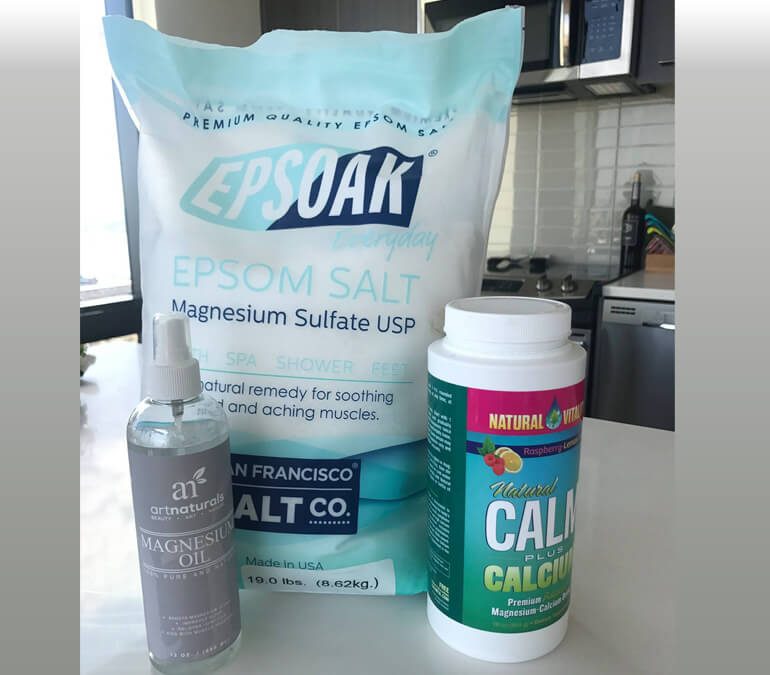The Current Situation of The Magnesium Epidemic
80% of the US population is Magnesium deficient, and it’s the MOST common nutrient deficiency. Women with PCOS are 19 times more likely to be magnesium deficient than the average person. Majority of people experience stress on a daily basis to some degree. When we stress our bodies, we deplete magnesium to support your adrenal glands which are mass producing cortisol.
Why is Magnesium Important?
Magnesium is a natural anti-inflammatory that is responsible for over 300 bodily functions. For women with PCOS magnesium is especially critical because it helps manage insulin secretion and sugar metabolism.
It Regulates:
❤Muscle function
❤Nerve function
❤Blood sugar levels
❤Blood pressure
❤And makes protein, bone, and DNA.
❤Improves muscle recovery
❤Decreases menstrual cramps
So Are You Taking Enough Magnesium?
Chances are you are deficient unless you have been intentionally supplementing your diet with extra magnesium.
“But I eat healthy and clean,” you say… believe me, I thought this too!
But in reality, even the cleanest, healthiest of eaters will still have deficits due to environmental compromise and the fact that very few of us are 100% anything, including clean and perfect eaters!
Symptoms of Magnesium Deficiency:
?Irritability
?Anxiety
?Muscle tension
?Spasms or cramps
?Inability to sleep
?PMS or hormonal imbalance
?Fatigue
?Headaches
?Nervousness
?Weak bones
?Low energy
Because of its massive influence on the wellness for our body, we need to educate ourselves on how and what form of it to use.
Not all forms are equal or used by the body in the same way.
Ways to Get More Magnesium
Foods:
A few magnesium-rich foods include avocados, raw green leafy vegetables, fish, nuts and seeds, raw cacao and grass-fed dairy products.
Supplements:
You can also take supplements (500mg/day), Epsom salt baths, or use magnesium oil massaged directly on the skin.
I am a huge supporter of doing it all and finding what works for you.
Use this information as a guide for further research and make your body the best it can be!
Why Should You Listen to Me?
Let’s get this out of the way I am not a nutritionist instead I am a student of life and extensive researcher.
In 1998 I was diagnosed with PCOS, and in 2013 I was diagnosed with Stage 3 Endometriosis. Doctors recommended a hysterectomy because of the severity of my conditions over 15 years ago which I have never agreed to.
On a daily basis, I was in extreme pain from my conditions, but I did not want to give up hope. Instead, I to use Food, Supplements, Essential Oils, and Exercise to balance my hormones.
I learned on this journey we are all different and require independent research from what doctors and medical professionals recommend. Listen to your doctors but also do your own research and get lots of medical opinions before deciding what to do.
I am a mental health provider and mainly blog about mental health, however, having PCOS is a huge part of me, and I find it necessary to share what I have learned. Our bodies, mind, and spirits are connected and by healing one part of you will heal another.
Take this blog as a starting point and do your own research. Never give up on healing your body naturally.
References:
Gynecol Endocrinol. 2012 Jan;28(1):7-11. doi: 10.3109/09513590.2011.579663. Epub 2011 Jun 23. Serum magnesium concentrations in polycystic ovary syndrome and its association with insulin resistance Sharifi F1, Mazloomi S, Hajihosseini R, Mazloomzadeh S. http://www.ncbi.nlm.nih.gov/pubmed/21696337









Recent Comments